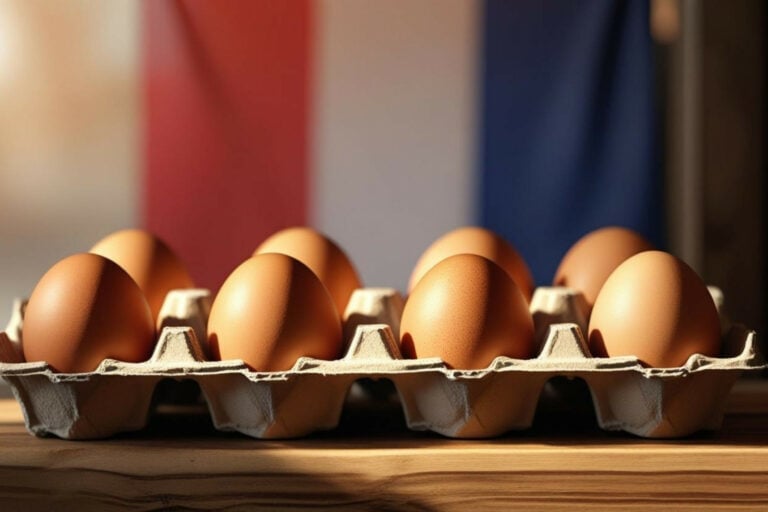December 7, 2025 | 12:29 GMT +7
December 7, 2025 | 12:29 GMT +7
Hotline: 0913.378.918
December 7, 2025 | 12:29 GMT +7
Hotline: 0913.378.918

In 2024, the French consumed on average 226 eggs per person. Photo: Canva.
Two large supermarkets, Carrefour and Leclerc, recently started selling eggs from Poland and Ukraine. They say they can’t find enough French produce to fill the shelves and meet the growing demand. The organisation for the egg industry – ‘Interprofession’ CNPO – says those eggs come from cage systems, while the same retailers have forced many of their French egg suppliers to switch to cage-free systems.
Recently, parties also disagreed about the co-financing by the retail sector of compulsory ovo-sexing to avoid the mass culling of male chicks. An agreement was only reached after long negotiations, the intervention of a mediator, and threats from the egg producers association CFA to stop the supply of eggs.
Now, both retail organisations FCA and FCD have decided to leave CNPO immediately since they feel they cannot make their voices heard. They accuse CNPO of a cacophony of voices, especially since the organisation welcomed some farmers’ unions and the union of producers of quality-label chickens as new members.
“CNPO has a governance structure that doesn’t allow for constructive and balanced dialogue with all parties involved. There are too many people around the table. They have recently made a number of decisions without taking into consideration the interests of the retail sector,” FCD chief Layla Rahnou said.
CNPO is taken aback by the sudden decision: “It goes against the functioning of the whole egg sector in our country at a time when the growing demand for eggs makes it necessary to engage collectively to increase the supply of French eggs,” CNPO said.
Last year, the French consumed on average 226 eggs per person, which was 4.2% up year-over-year, while the global average is 182. National production can’t meet demand, so the import of eggs is increasing rapidly, to the annoyance of French producers. Until now, these foreign eggs were mostly for the processing industry or hospitality sector, but now eggs for the consumer market come from abroad as well.
(Poultryworld)

(VAN) As of 2025, the ASEAN region has a total of 69 ASEAN Heritage Parks recognized across its 10 member states. Among them, Viet Nam contributes 15 ASEAN Heritage Parks.

(VAN) Yok Don National Park has high biodiversity with numerous endemic plant and animal species, and it is also the only dipterocarp forest ecosystem conservation area in Viet Nam.

(VAN) Viet Nam and Brunei signed two important MOUs on fisheries and IUU, expanding cooperation in agriculture, the environment, and Halal exports, aiming to substantively implement joint projects.

(VAN) The Viet Nam Coconut Association worked with the International Finance Corporation (IFC) and businesses to promote the supply chain, enhance competitiveness, and develop the coconut industry sustainably.
![Hue aims for Net Zero: [2] Pioneering low-emission tourism](https://t.ex-cdn.com/nongnghiepmoitruong.vn/608w/files/huytd/2025/12/04/0633-dulichzero-4-095634_236-161125.jpg)
(VAN) The ancient capital of Hue has developed Net Zero tourism products and models, aiming to reduce carbon emissions and pioneer the establishment of Viet Nam's green tourism destination.

(VAN) C.P. Viet Nam has announced the successful completion of its goal to plant 1.5 million trees during the 2021-2025 period, a key milestone within company's long-term ESG strategy and its roadmap for emission reduction.

(VAN) This is an initiative of MAE aimed at creating a unified coordination mechanism to implement agricultural cooperation programs with developing countries.